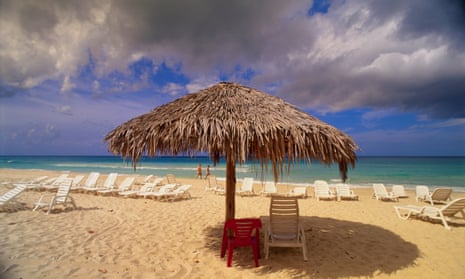They call it the “experience economy”: a huge shift in consumer behaviour is said to be under way, from buying things to doing things.
The demise of high street stalwarts BHS and Austin Reed, poor retail spending figures and a downturn in the number of people visiting high streets and shopping centres, are all being held up as evidence that Britons’ priorities are changing.
Earlier this year a senior Ikea executive warned that the appetite of western consumers to own ever more goods and chattels was probably waning. “In the west”, he warned, “we have probably hit peak stuff.”
Now retailers ranging from fashion to food chains are making similar observations, because official data shows that households are spending less on clothes and food but more on holidays, cars, entertainment and eating out. Spending on gadgets that keep people connected to the internet is also on the rise.
“We increasingly see a trend for consumers to spend more on experiences rather than on products,” said Kevin Jenkins, the UK and Ireland managing director of payment card group Visa Europe.
“Eating out, booking holidays and discovering new experiences are all driving spending growth at a time when the lower cost of living is creating higher disposable incomes.”
There are six areas where spending is growing and this is what they tell us about the changing way we shop:
Cars
The number of new cars registered in April hit its highest level for 13 years, continuing a rising trend, according to figures from the Society of Motor Manufacturers and Traders.
The UK’s rock-bottom borrowing costs are a key factor here. But there has also been a huge switch in the UK away from buying cars outright to leasing and buying on credit. It is estimated that four in five new cars are bought on credit – a trend powered by low interest rates.
Recreation
Rising employment, near-zero inflation and low interest rates have boosted household budgets. Food prices have fallen amid a supermarket price war, cheap oil has helped knock back petrol prices and the rise of discount retailers has cut the cost of clothes. All that leaves more money for non-essentials.
Average household weekly spending on clothes and food has fallen since 2010 while spending on recreation and culture has risen, according to the Office for National Statistics (ONS). The most recent increase in spending on this category was driven by extra spending on computers, garden plants and sports admissions.
Lorna Hall, head of market intelligence at trend forecaster WGSN, says such patterns reflect changing priorities. “People are interested in servicing a lifestyle rather than buying stuff.”
She predicts the trend will continue because younger people have a different attitude to owning things to their parents, partly because they are less likely to be home owners, wanting to feather their nest. They have also grown up with the idea of renting or subscribing to services like iTunes or Spotify.
Just as spending on tablets has risen, so has spending on connecting devices to the internet. The ONS says spending on communication has been on the up since 2002, partly because of a rise in what we splash out on mobile phones – both on new handsets and contract payments.
Holidays
One sign that experiences are trumping things, is the rise in holiday travel. Official tourism figures show the number of trips taken for fun or to visit family and friends has increased sharply since 2010.
As Sainsburys revealed a drop in profits this week, its chief executive, Mike Coupe, said shoppers had more money in their pockets but were spending it largely on holidays and new cars.
Eating out
Year-on-year spending growth by sector

Spending on hotels, bars and restaurants has been growing several times faster than overall spending in the past year, according to Visa Europe. Its latest figures showed a year-on-year rise of 5.3% for spending on that category, while spending on clothes and shoes fell.
Last week Next’s chief executive, Lord Wolfson, said there was a shift in consumer spending away from clothing and towards other priorities such as eating out, housing and cars, but he reckoned – or maybe was hoping – the shift would not be permanent.
Online shopping
One experience that seems to have fallen out of fashion is the shopping trip. Once a very British pastime, family trips to the mall are being replaced by online shopping and trips to retail parks – but that face-to-face shopping is often just to pick up “click and collect” items ordered online.
This rise of online shopping, increasingly done on the go from mobile phones, has led to a sharp increase in demand for delivery services. The number of vans on Britain’s roads has hit an all-time highand industry insiders suggest there are about 40,000 delivery drivers fronting a battle between retailers competing to offer the fastest and cheapest deliveries.

Comments (…)
Sign in or create your Guardian account to join the discussion